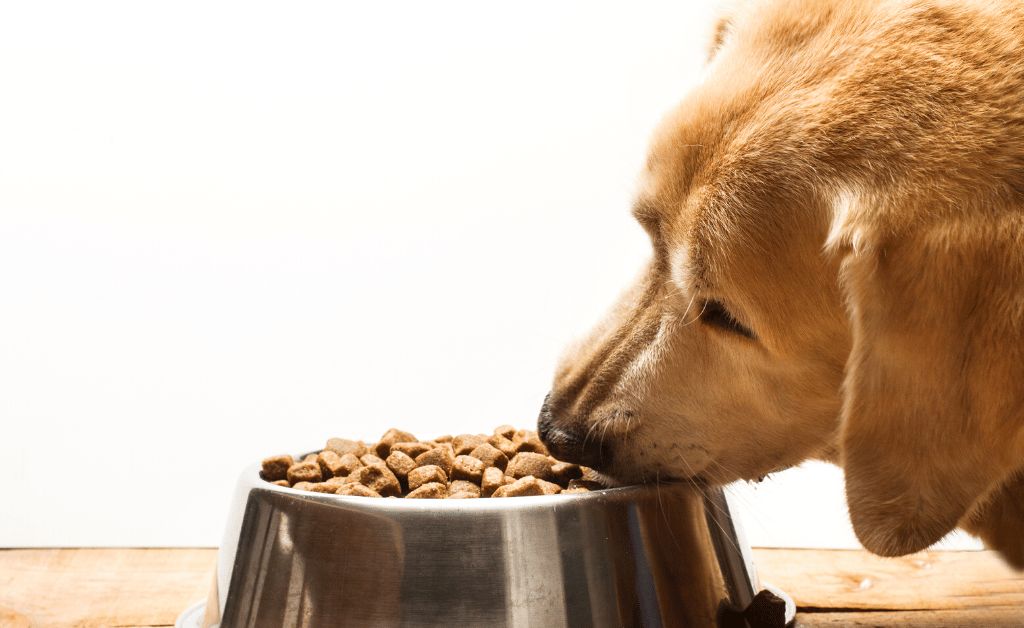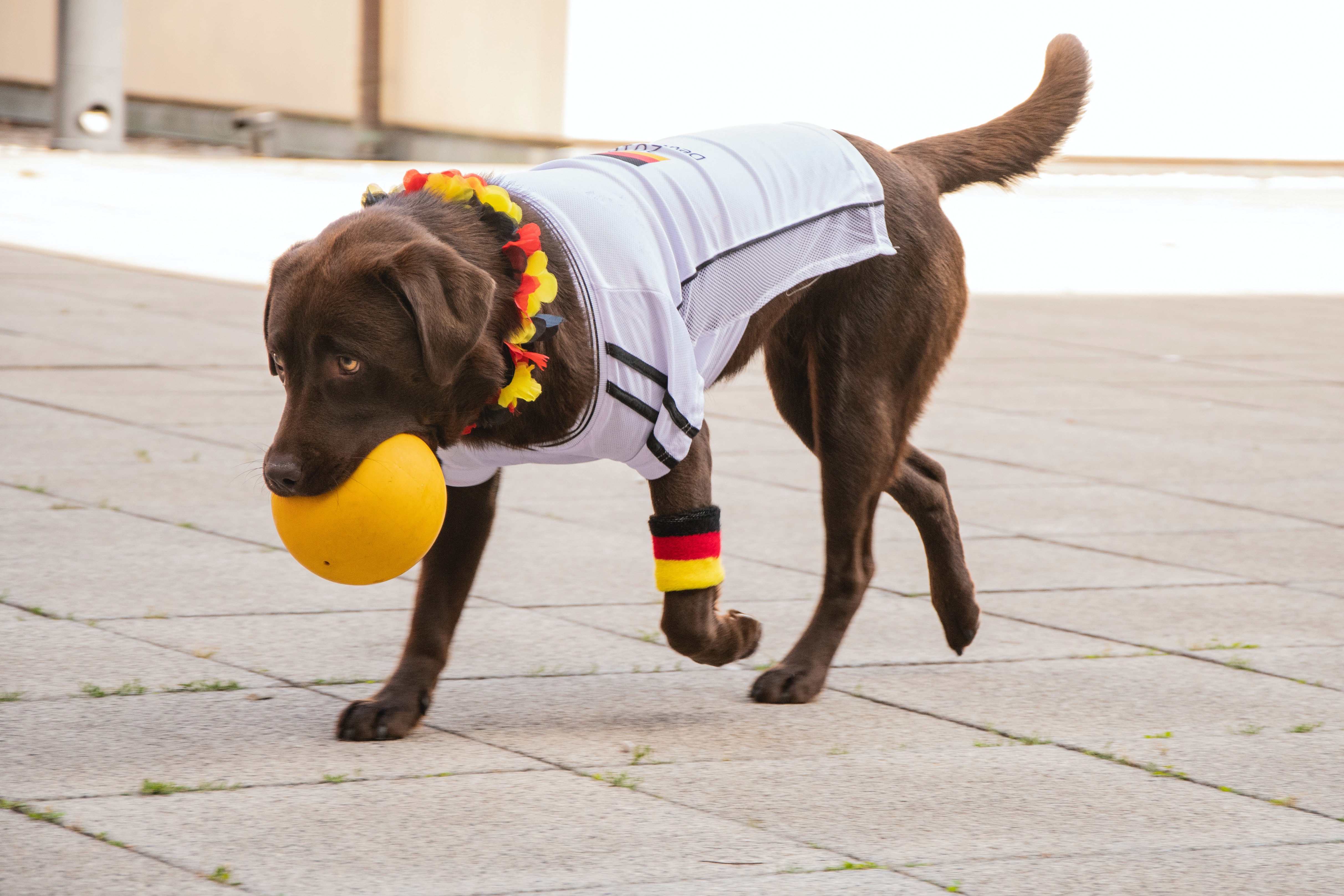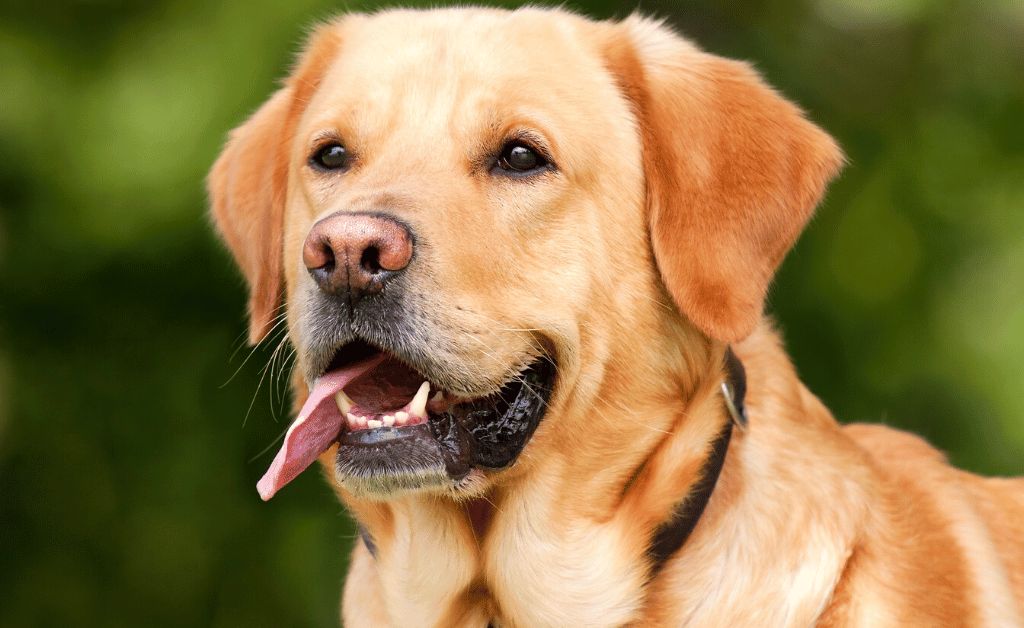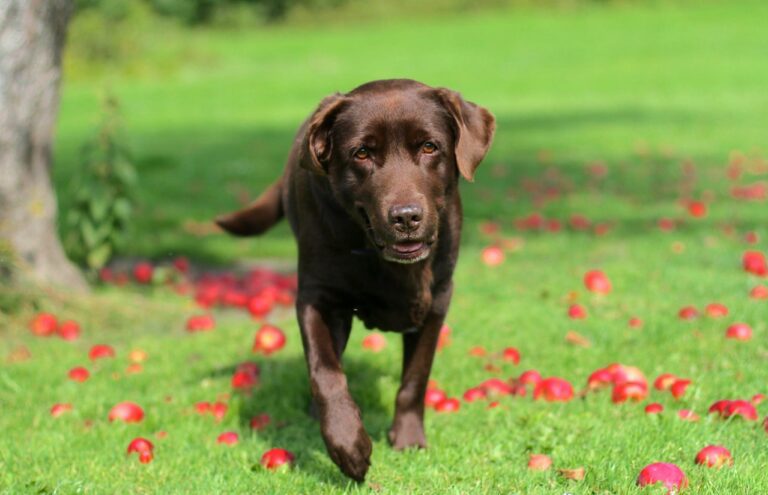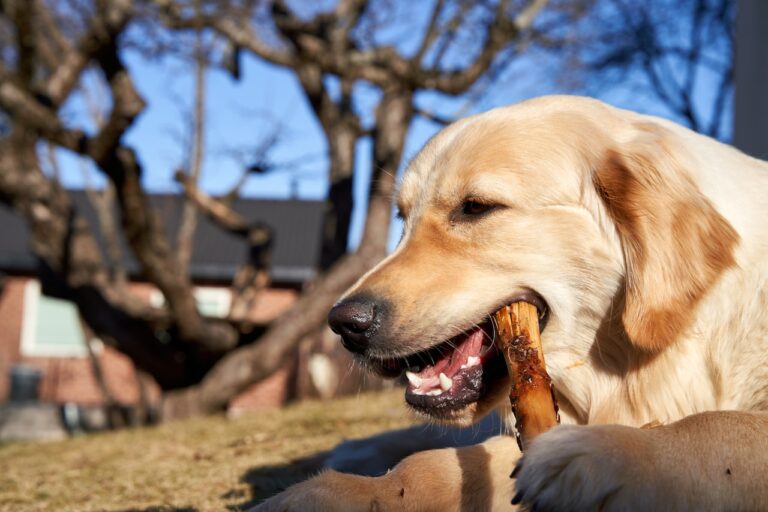Why Is My Labrador Always Hungry?
Does your Labrador always seem hungry, no matter how much you feed him? Are you worried that he’s not getting enough to eat? Well, the answer may surprise you!
The Labrador is infamous for being a pig, even among dogs. If you own a lab, you might wonder why it is always hungry. We all know that dogs love food and are begging for treats with their huge round eyes. However, your Labrador might have an insatiable appetite, which can worry some pet owners.
In reality, most Labradors are just extremely food motivated. This means they love to eat and will do anything for a snack! They have an incredibly strong sense of smell which can detect food from far away distances – this could be why your Labrador is always sniffing around in the kitchen or pantry area.
If you want to know why your Labrador is always hungry, keep reading. We’ll closely examine the breed’s traits, diet, and nutritional requirements. You might be surprised to learn that Labradors need more food than you think!
Common Reasons Your Labrador Might Always be Hungry
There are several reasons why your Labrador might seem to be always hungry. Here are some of the most common:
👉 Genetic Mutations
A study conducted in 2016 at the University of Cambridge suggests that an altered gene is to blame for your Lab’s insatiable hunger. As a result of the mutation in the POMC gene, the Labrador cannot properly interpret satiety cues sent from the stomach to the brain.
In the Labrador Retriever breed, approximately 23% of dogs carry at least one PCOM mutation. Because of this, your Lab will only be able to determine when it’s full. That’s why it’s important to keep an eye on their food intake.
The research revealed that a rise in weight of 1.9 kg was connected to each gene mutation allele. In addition, your dog’s hunger will increase, and its fat percentage will rise.
Labradors working as service animals were more likely to carry the mutant POMC gene (approximately 45% higher). This suggests that Labradors’ high food motivation accounts for their ease of training.
There is currently no cure for POMC mutation. If you own a Labrador that has been diagnosed with this illness, you can control it by following the advice of your vet regarding your dog’s diet and activity routine.
👉 Underlying Health Problem
If your Labrador always seems hungry, it could indicate an underlying medical issue. Some of the most common medical issues that can cause increased appetite in Labradors to include:
- Diabetes Mellitus
Diabetes Mellitus is a disease that affects the way the body handles sugar. It is a common disease in dogs, and Labrador Retrievers are no exception. Untreated diabetes can lead to serious health problems, including blindness, kidney disease, and even death.
If your Labrador has diabetes, it will constantly be hungry and thirsty due to the body’s inability to absorb glucose. Your vet can diagnose this condition with a simple blood test. Treatment includes dietary changes and insulin injections, depending on the severity of the condition.
- Cushing’s Disease
Cushing’s Disease is an endocrine disorder affecting the body’s cortisol production. Cortisol is a hormone responsible for regulating metabolism, sugar levels, and other important body functions. An excess of cortisol causes increased appetite and thirst in dogs, which can lead to weight gain and other symptoms.
- Cancer
Sadly, just like other breeds of dogs, Labradors are susceptible to developing various cancers. Your dog’s increased hunger and decreased energy come from the nutrients that cancer cells steal from his body. Bringing your Labrador in for regular examinations at the vet can help detect cancer early or possibly help prevent it from developing.
- Gastrointestinal or Pancreatic Issues
Issues in the digestive tract, such as intestinal inflammation or an underactive exocrine pancreas, can cause nutritional deficiencies. Your Lab may try to make up for the fact that its stomach isn’t able to process the meal by eating extra. Changes in feces color and consistency, as well as weight loss despite increased feeding, may indicate that your dog suffers from a gastrointestinal disorder.
👉 Training
Labradors are highly trainable, but it is important to remember that they have a lot of energy and need proper training. If your Lab is not given enough exercise or mental stimulation, they may become bored or frustrated and start looking for food as an outlet.
Making sure that your Lab has enough physical and mental stimulation can help reduce their hunger. Keeping a consistent feeding schedule and providing healthy treats can also help keep their hunger in check.
👉 Stress
Stress can also be a major factor in increased hunger. If your Lab is feeling anxious, it may start looking for comfort food to fill an emotional void. It’s important to identify sources of stress and work with your vet or dog trainer on ways to reduce it.
Given their high intelligence and sensitivity, Labradors are more prone to stress than many other breeds. If your Labrador is constantly hungry, it may be a sign that something is wrong and should be checked out by a vet.
👉 Nutritional Deficiencies
Finally, nutritional deficiencies can lead to increased hunger and decreased energy levels. Make sure you give your Labrador a balanced diet with all the necessary nutrients for optimal health. Supplements can also help when appropriate.
If you suspect your Lab has a nutritional deficiency, talk to your vet about it. They may suggest making dietary changes or recommend supplements to correct the deficiency.
How To Control Labrador Retrievers Appetite
Overeating can create a variety of physical and mental problems in your dog, whether due to genetics or poor eating habits. That’s why controlling your Labrador’s diet is so important!
🐶 Portion Control
Determining how much food your Lab requires is crucial. Your dog’s specific dietary needs will vary from brand to brand, so rely on something other than the information provided on the back of the dog food bag.
If you’ve noticed that your Lab puppy dog’s weight is on the rise, consider reducing its serving size by about a third. It would be best if you talked to your vet before making any significant dietary modifications to your Lab.
🐹 Feeding Schedule
Create a consistent feeding schedule for your Lab and stick to it. This will help keep their hunger under control and prevent them from overeating. It’s best to feed meals simultaneously each day without allowing any snacks in between.
🐹 High-Quality Dog Food
Providing your Lab with a high-quality diet is the best way to keep them healthy and satiated. Look for dog food brands that are tailored to their age, size, and activity level.
Avoid processed foods and those with artificial ingredients or fillers. Instead, opt for natural options high in protein and fiber to help keep your Lab full and satisfied.
🐹 Avoid Table Scraps
Table scraps can be unhealthy and even dangerous for your Lab, so it’s best to avoid giving them any. If you want to treat your dog, stick to healthy treats specifically designed for dogs.
🐹 Use Slow Feeders
Slow feeders are a great way to help your Lab control its hunger. These devices can help your dog eat more slowly, which can reduce the risk of overeating. Slow feeders also provide mental stimulation and give your dog something to do while they eat.
Frequently Asked Questions
Q: Does a golden retriever need more food than a labrador?
A: No, golden retrievers and Labrador retrievers generally need the same amount of food. However, it’s important to adjust their diet to account for individual differences such as age, size, and activity level. Talk to your vet about what’s best for your particular dog.
Q: How can cell metabolism affect a Labrador’s appetite?
A: Cell metabolism affects the rate at which your Labrador’s body digests and absorbs food. If your dog’s cell metabolism is impaired, it can lead to decreased energy and increased hunger. Talk to your veterinarian if you suspect this might be an issue for your Labrador.
Q: Does a large breed puppy need more food than an adult Lab?
A: Yes, puppies generally require more calories and nutrients than adult dogs. Make sure you are feeding your puppy a diet specifically designed for large-breed puppies to get all the nutrition they need.
Q: Which is better? Dry food or wet food?
A: That depends on your individual Labrador. Some dogs prefer one over the other, so it’s best to experiment and find out what works for your pup. Generally, a combination of dry and wet food is recommended for optimal nutrition.
Q: What is the reason for canine obesity? How to prevent it?
A: Canine obesity is usually caused by overfeeding and lack of exercise. To prevent obesity in your Lab, ensure that you are feeding them an appropriate portion size and providing enough physical activity throughout the day. Talk to your veterinarian for more detailed advice on maintaining a healthy weight for your Labrador. With the right diet and preventive measures, you can help ensure that your Lab stays healthy and happy for years to come.
Q: What is the healthy weight of a Labrador?
A: The healthy weight of a Labrador varies depending on the dog’s age, sex, and body size. Generally speaking, adult male labs should weigh between 65 and 80 pounds (29 – 36 kg), while adult females should weigh between 55 and 70 pounds (25 – 32 kg).
Final Words
Keeping your Labrador healthy and satiated can be a challenge. With the right diet, you can help ensure that your Lab is getting all the nutrition they need without overindulging in unhealthy or dangerous foods. Feeding them on a regular schedule, providing high-quality dog food, avoiding table scraps, using slow feeders, and monitoring their weight are just some of the ways you can help your Lab stay healthy and happy.
If you have any questions or concerns, it’s best to talk to your veterinarian. They will be able to provide tailored advice that is specific to your Labrador. With a bit of planning, patience, and care, you can ensure that your Lab lives a long and happy life.

